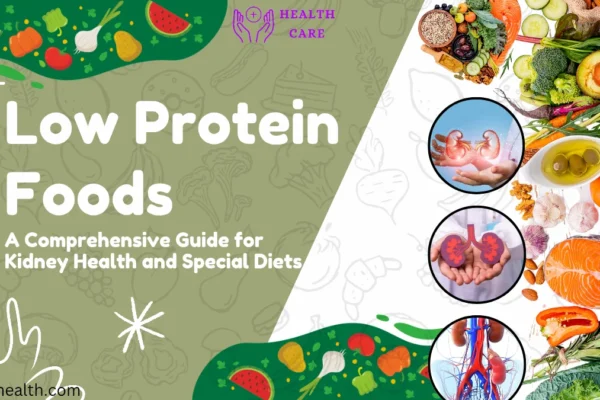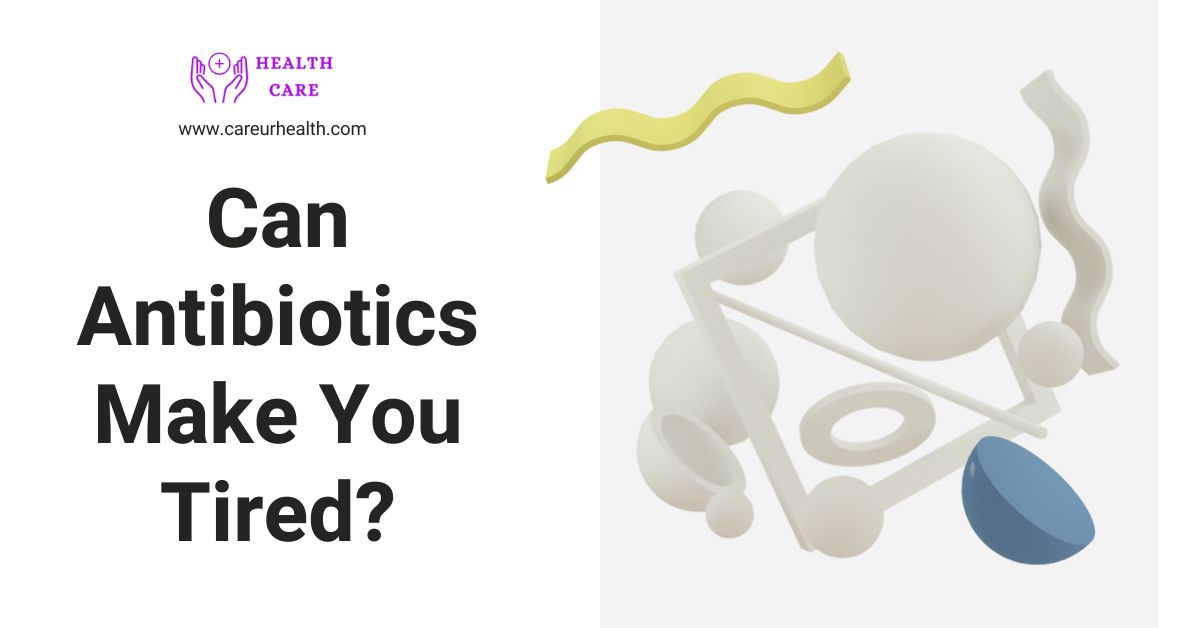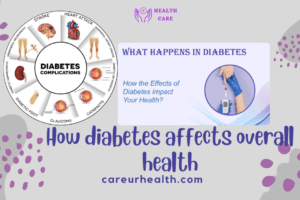Antibiotics are potent medications used to combat bacterial infections, but they often come with a range of side effects. One commonly reported side effect is fatigue. In this article, we delve into the relationship between antibiotics and tiredness, exploring the possible mechanisms behind this phenomenon and providing insights into how individuals can manage tiredness while taking antibiotics. Antibiotics can make you tired.
Understanding Antibiotics:
Antibiotics are medications designed to kill or inhibit the growth of bacteria. They are commonly prescribed to treat various bacterial infections, ranging from respiratory infections to urinary tract infections. While antibiotics are highly effective in treating bacterial infections, they can also disrupt the balance of bacteria in the body, leading to a range of side effects.

The Link Between Antibiotics and Fatigue
Antibiotics are a cornerstone of modern medicine, effectively combating bacterial infections. However, along with their benefits, antibiotics can also induce side effects, including fatigue. This article examines the connection between antibiotics and fatigue, exploring possible mechanisms and offering strategies for management. Fatigue is a common complaint among individuals taking antibiotics. While the exact mechanism behind this association is not fully understood, several factors may contribute to antibiotic-induced fatigue:
Disruption of Gut Microbiota:
Antibiotics serve as broad-spectrum weapons, targeting both harmful and beneficial bacteria in the body. The gut microbiota, a diverse community of microorganisms residing in the gastrointestinal tract, plays a pivotal role in numerous physiological processes, including digestion, nutrient absorption, and energy metabolism. Antibiotics disrupt this delicate balance, suppressing the growth of beneficial bacteria while allowing opportunistic pathogens to flourish. As a consequence, alterations in gut microbiota composition can impair nutrient absorption and compromise energy production, contributing to feelings of fatigue and lethargy. Antibiotics can make you tired.
Immune System Modulation:
The immune system orchestrates a complex response to invading pathogens, mobilizing various cells and signalling molecules to eliminate threats and restore homeostasis. Antibiotics, while primarily targeting bacterial infections, can also modulate the body’s immune response. By altering inflammatory processes and immune cell activity, antibiotics may induce systemic changes that impact energy levels. Heightened immune activity demands increased energy expenditure, diverting resources away from essential physiological functions and exacerbating feelings of fatigue. Antibiotics can make you tired.
Secondary Infections:
Prolonged or indiscriminate antibiotic use heightens the risk of secondary infections, including fungal overgrowth and antibiotic-resistant bacterial infections. Antibiotics create an ecological niche favouring opportunistic pathogens, such as Candida spp. and multidrug-resistant bacteria, which can exploit the disrupted microbiota and colonize various body sites. Secondary infections not only tax the immune system but also deplete energy reserves, amplifying feelings of fatigue and compromising overall well-being.Antibiotics can make you tired.
Mitochondrial Dysfunction:
Mitochondria, often referred to as the powerhouse of cells, play a critical role in energy production through oxidative phosphorylation. Some antibiotics have been implicated in interfering with mitochondrial function, disrupting electron transport chain activity and impairing ATP synthesis. Mitochondrial dysfunction compromises cellular energy metabolism, leading to reduced energy production and diminished physical and mental stamina. Consequently, individuals may experience increased fatigue and decreased endurance during antibiotic treatment. Antibiotics can make you tired.
Neurotransmitter Imbalance:
Antibiotics have the potential to perturb neurotransmitter levels in the brain, particularly serotonin and dopamine, which play pivotal roles in regulating mood, cognition, and energy levels. Imbalances in neurotransmitter levels can manifest as symptoms of fatigue, lethargy, and mental fog. Additionally, alterations in neurotransmitter signalling may influence motivation and drive, further exacerbating feelings of tiredness and impacting daily functioning. Antibiotics can make you tired.
Management Strategies for Antibiotic-Induced Fatigue:
Hydration:
Adequate hydration is essential to flush out toxins from the body and alleviate fatigue. Drinking plenty of water can support the body’s natural detoxification processes.
Rest:
Allow your body ample time to rest and recuperate. Avoid strenuous activities and prioritize sleep to support the healing process. Quality sleep is essential for energy restoration and overall well-being.
Balanced Nutrition:
Consuming a balanced diet rich in nutrients can help support overall health and energy levels. Include plenty of fruits, vegetables, lean proteins, and whole grains in your meals. Avoid excessive consumption of sugary and processed foods, which can contribute to fatigue.
Probiotics:
Consider incorporating probiotic supplements or probiotic-rich foods into your diet to help restore the balance of beneficial bacteria in the gut. Probiotics can support gastrointestinal health and may alleviate antibiotic-induced digestive disturbances, which can contribute to fatigue.
Communication with Healthcare Providers:
If fatigue persists or becomes severe, it is essential to communicate with your healthcare provider. They can evaluate your symptoms, provide guidance on managing fatigue, and determine whether any adjustments to your treatment plan are necessary.
Understanding the Benefits of Antibiotics
Antibiotics revolutionized medicine by providing effective treatment for bacterial infections. Their benefits extend beyond just combating infections, impacting various aspects of healthcare. This article highlights the numerous benefits of antibiotics in modern medicine.
Treating Bacterial Infections:
The primary benefit of antibiotics is their ability to treat bacterial infections. From common ailments like strep throat and urinary tract infections to life-threatening conditions such as pneumonia and sepsis, antibiotics play a crucial role in eradicating bacterial pathogens and preventing the spread of infection.
Saving Lives:
Antibiotics have saved countless lives since their discovery. Before antibiotics became widely available, even minor bacterial infections could be deadly. The introduction of antibiotics dramatically reduced mortality rates from bacterial diseases, ushering in a new era of healthcare and extending life expectancy.
Preventing Complications:
Prompt administration of antibiotics can prevent complications associated with bacterial infections. By eliminating the bacteria responsible for the infection, antibiotics reduce the risk of serious complications such as organ damage, septic shock, and long-term disability.
Surgical Procedures:
Antibiotics are routinely used to prevent infections during surgical procedures. Prophylactic antibiotic therapy helps reduce the risk of surgical site infections, which can lead to prolonged hospital stays, additional medical interventions, and increased healthcare costs.
Treating Chronic Conditions:
Some chronic conditions, such as cystic fibrosis and chronic obstructive pulmonary disease (COPD), are characterized by recurrent bacterial infections. Antibiotics are essential for managing these conditions by suppressing bacterial growth, controlling symptoms, and preventing exacerbations.
Combatting Antibiotic Resistance:
While antibiotic resistance is a significant concern, antibiotics remain essential for treating infections caused by susceptible bacteria. By effectively treating infections, antibiotics help prevent the spread of resistant bacteria and preserve the effectiveness of existing antibiotics.
Improving Quality of Life:
Effective treatment of bacterial infections with antibiotics can significantly improve patient’s lives. Relief from symptoms such as fever, pain, and inflammation allows individuals to resume their normal activities and recover more quickly.
Public Health:
Antibiotics play a crucial role in public health initiatives, such as controlling infectious disease outbreaks and reducing the transmission of bacterial pathogens. Timely administration of antibiotics can help contain outbreaks and prevent the widespread dissemination of infectious agents.
The Side Effects of Antibiotics
Antibiotics are invaluable medications for treating bacterial infections, but they are not without side effects. While antibiotics effectively target harmful bacteria, they can also affect beneficial bacteria in the body and lead to various adverse reactions. This article examines the common side effects associated with antibiotic use and offers insights into their management. Antibiotics can make you tired.
Gastrointestinal Disturbances:
One of the most common side effects of antibiotics is gastrointestinal disturbances, including nausea, vomiting, diarrhoea, and abdominal pain. Antibiotics can disrupt the balance of bacteria in the gut, leading to gastrointestinal symptoms. These symptoms are more common with broad-spectrum antibiotics and may range from mild to severe. Antibiotics can make you tired.
Allergic Reactions:
Some individuals may experience allergic reactions to antibiotics, ranging from mild skin rashes to severe anaphylaxis. Allergic reactions are more likely to occur with certain classes of antibiotics, such as penicillins and cephalosporins. It is essential to seek medical attention immediately if signs of an allergic reaction, such as difficulty breathing or swelling of the face, occur. Antibiotics can make you tired.
Antibiotic-Associated Diarrhea:
Antibiotic-associated diarrhoea is a specific type of gastrointestinal disturbance that occurs as a result of antibiotic use. It is often caused by the disruption of beneficial bacteria in the gut, allowing harmful bacteria such as Clostridium difficile to overgrow and cause infection. Severe cases of antibiotic-associated diarrhoea can lead to dehydration and require medical intervention. Antibiotics can make you tired.
Yeast Infections:
Antibiotics can disrupt the natural balance of microorganisms in the body, leading to overgrowth of yeast such as Candida albicans. This can result in yeast infections, most commonly affecting the mouth (oral thrush) or genital area (vaginal yeast infections). Symptoms may include itching, burning, and abnormal discharge.Antibiotics can make you tired.
Drug Interactions:
Certain antibiotics may interact with other medications, affecting their efficacy or increasing the risk of side effects. It is essential to inform healthcare providers about all medications, supplements, and herbal remedies being taken to minimize the risk of drug interactions. Additionally, some antibiotics can interfere with oral contraceptives, reducing their effectiveness and increasing the risk of unintended pregnancy.Antibiotics can make you tired.
Photosensitivity:
Some antibiotics, particularly tetracyclines and fluoroquinolones, can increase sensitivity to sunlight, leading to sunburn or skin rash upon sun exposure. Individuals taking these antibiotics should avoid prolonged sun exposure and use sunscreen with a high SPF to protect their skin.Antibiotics can make you tired.
Development of Antibiotic Resistance:
Prolonged or inappropriate use of antibiotics can contribute to the development of antibiotic resistance, where bacteria become resistant to the effects of antibiotics. This can render antibiotics ineffective in treating bacterial infections, leading to prolonged illness, increased healthcare costs, and higher mortality rates. Antibiotics can make you tired.
Management of Antibiotic Side Effects:
To minimize the occurrence and severity of antibiotic side effects, healthcare providers may recommend the following strategies:
- • Taking antibiotics as prescribed and completing the full course of treatment.
- • Using probiotics to help restore the balance of beneficial bacteria in the gut.
- • Drinking plenty of fluids to prevent dehydration.
- • Avoiding alcohol consumption, which can exacerbate certain antibiotic side effects.
- • Seeking medical attention if severe or persistent side effects occur.
Conclusion:
Antibiotics, while indispensable for combating bacterial infections, can induce fatigue through various mechanisms, including disruptions in gut microbiota, immune system modulation, the risk of secondary infections, mitochondrial dysfunction, and neurotransmitter imbalance. Recognizing these contributing factors is crucial for understanding the multifaceted nature of antibiotic-induced fatigue and implementing strategies to mitigate its impact. By optimizing antibiotic use, supporting gut health, and addressing underlying physiological disturbances, healthcare providers can help minimize fatigue and enhance patient well-being during antibiotic therapy. Antibiotics can make you tired.
Frequently Asked Questions
Can antibiotics make you feel tired?
Yes, antibiotics can make you tired as a side effect. While they are effective at treating bacterial infections, they can also disrupt the balance of bacteria in your body, leading to tiredness and lethargy.
How common is tired as a side effect of antibiotics?
Making you tiredis a relatively common side effect of antibiotics. It can occur with various types of antibiotics and may vary in severity from mild to more pronounced tiredness.
When does tired typically occur during antibiotics treatment?
Fatigue can occur at any point during antibiotic treatment. Some people may experience it shortly after starting antibiotics, while others may notice it later in their course of treatment.
Why do antibiotics make you tired?
Antibiotics can make you tired by disrupting the balance of bacteria in your gut, affecting your immune system, and potentially causing secondary infections. Additionally, some antibiotics may interfere with mitochondrial function and neurotransmitter levels, contributing to fatigue.
Are certain antibiotics more likely to cause tired than others?
While tired can occur with any antibiotics, certain types may be more commonly associated with this side effect. For example, fluoroquinolones and macrolides are known to cause fatigue in some individuals.
Is tired a sign that antibiotics are working?
Not necessarily. While antibiotics are effective at treating bacterial infections, fatigue is usually a side effect rather than an indication of treatment efficacy. It’s essential to discuss any symptoms of fatigue with your healthcare provider.
How long does tired from antibiotics typically last?
The duration of fatigue can vary depending on factors such as the type of antibiotic, the severity of the infection being treated, and individual differences in response. In most cases, fatigue resolves once antibiotic treatment is completed.
Can I take anything to alleviate tired while on antibiotics?
You can try to alleviate fatigue by staying hydrated, getting plenty of rest, eating a balanced diet, and considering probiotics to support gut health. However, it’s essential to consult your healthcare provider before taking any supplements or medications.
Should I stop taking antibiotics if I feel tired?
No, it’s important to complete the full course of antibiotics as prescribed by your healthcare provider, even if you experience fatigue. Stopping antibiotics prematurely can lead to incomplete treatment and increase the risk of antibiotic resistance.
When should I contact my healthcare provider about tired from antibiotics?
You should contact your healthcare provider if tired is severe, persistent, or accompanied by other concerning symptoms. Your provider can evaluate your condition and determine whether any adjustments to your treatment plan are necessary.
Mobi Doctor










